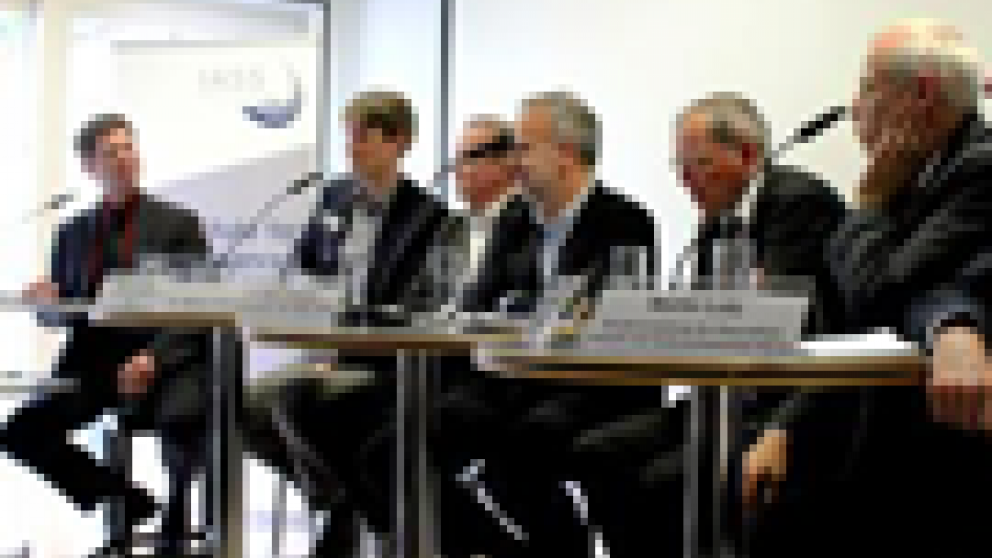Air Quality and Climate Change Policies – Separate or Joint Challenges?
29.05.2013

On occasion of the Green Week 2013 on May 21, 2013, the IASS project ClimPol together with the Deutsche Umwelthilfe and the European Environmental Bureau organized the conference “Air Quality and Climate Change Policies – Separate or Joint Challenges?“ within the context of the European Year of Air. The aim was to bring together representatives from science, policy, practice, NGOs and industry to discuss the needs, potentials and challenges of integrating air quality and climate change policies.
Air pollution and climate change are both major challenges for present and future generations. Whereas climate change is perhaps the paramount environmental challenge that we will be facing on a global level over the coming century, air pollution is projected to be the top environmental cause of death by 2050 globally. And what’s more, these two problems are inextricably linked. Despite the high interconnectedness, air pollution and climate change are politically treated as two separate issues. The potential of integrating these two sectors has only recently entered public discussion.
Policy makers at the European level are well aware that there are many co-benefits from integrating the two policy sectors. However, at the same time there are trade-offs which need to be addressed openly as well. One of the conference’s key messages was that integration makes sense and should be pursued while for specific cases separate policy decisions will be necessary for fast action in order to avoid long delays through the integration process.
Concrete next steps for Europe must include the regulation of soot emissions from domestic wood burning and non-road mobile machinery that impair air quality and climate change at the same time. In addition, including methane in the National Emissions Ceilings Directive, which will be reviewed this year, would be another important step forward.
During the panel discussion, moderated by IASS scientific Director Mark Lawrence, it was stressed that integrated assessments considering the impacts of measures on air quality and climate change simultaneously should be applied. At the same time, policy integration across the different scales and levels, starting from the local up to the European level, will have to be realized for coherent action, as stressed by Martin Lutz, Berlin Senate Department for Environment.
Among the high level speakers and panelists were Thomas Verheye from the European Commission Directorate General (DG) Environment, Ger Klaassen from DG Climate Action, Svante Bodin from the International Cryosphere Climate Initiative and Markus Amann from the International Institute for Applied System Sciences.
The ClimPol Team will continue its work on options for integrating air quality and climate change policies specifically focusing on advancing the development of scientific metrics that are able to evaluate effects on climate and air simultaneously. In September, ClimPol and the European Environment Agency will hold a joint workshop in Copenhagen on the issue.